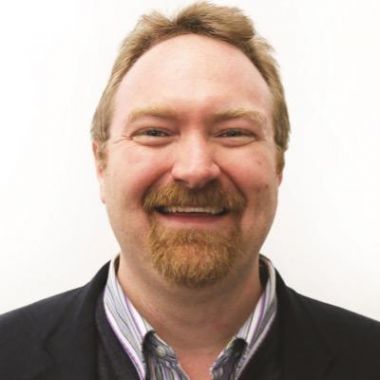Conservative evangelicals celebrate election of 'living out' leaders to CofE synod

Conservative evangelicals are celebrating the election of the three leaders of the "living out" community to the General Synod of the Church of England.
Dr Sean Doherty, who lectures in Christian ethics at the evangelical St Mellitus College in London, topped the clergy poll in the London diocese. Also elected were Rev Sam Allbery, associate minister of St Mary's Church, Maidenhead, and the author of Is God Anti-Gay? and Ed Shaw, associate pastor at Emmanuel Bristol.
All three admit to same-sex attraction but live out a lifestyle in which they consciously "help Christian brothers and sisters who experience same-sex attraction stay faithful to biblical teaching on sexual ethics and flourish at the same time."
Through the Living Out organisation they also aim to help the Christian Church understand how they can better help those who experience same-sex attraction to flourish, and to help the wider world "hear and understand that there is more than just one viable script for those who are same-sex attracted".
In his election address, Dr Doherty, married with four children, said: "I used to identify myself as gay and am still predominantly same-sex attracted. I am fully committed to the Church's teaching on human sexuality, which I believe is faithful to Scripture and to the mind of the historic and global church. I have found this teaching to be life-giving and fulfilling in my own life, and I have found the church to be a place of unconditional acceptance and support."
He said his journey and experience made him well-placed to help the church be more welcoming and loving to LGBT people. "The Bishop of London has asked that 'those who offer themselves for membership of General Synod ... will do so with a commitment to take part' in the Shared Conversations on sexuality. I believe that it is vital for voices like mine to be represented in those conversations and on Synod if we are to recover our confidence in this teaching as positive and life-giving. I will advocate for our Church to welcome all, but without watering down biblical teaching, and I would oppose the authorisation of blessings and/or church weddings for same-sex couples."
Their election is significant and comes as at least four openly gay clergymen were also elected to the synod, including one who is married, two who are in civil partnerships and a fourth who is planning to seal his relationship with a civil ceremony.
Other significant victors include Jayne Ozanne to the laity. Ozanne, a former conservative evangelical, continues to regard herself as evangelical after she "came out" as gay in an interview with Christian Today earlier this year.
The results reflect a strengthening of both the evangelical as well as the gay activist lobby at Synod, at the expense of the more ambiguous middle or liberal wing.
In addition, the Catholic group strengthened its presence. Forward in Faith said the Catholic wing will be re-invigorated as a result. "Half of the members of the new, larger, Catholic Group have never been members of the General Synod before. We are particularly pleased to have increased our representation in each of the three houses."
Now that women bishops are "done" and some already consecrated, the conservative evangelicals, who were divided on that issue, are likely to find a new unity on the gay issue. The LGBT side is also expected to witness to intense lobbying for a change in practice. At present actively gay clergy technically cannot be ordained or marry and Church of England churches are forbidden in law from hosting same-sex marriage ceremonies.
A source told Christian Today that the first test of the new synod's position is likely to be a move to soften the so-called Higton motion, passed by an overwhelming majority in 1987, and which was the synod's last official statement on the issue. A subsequent 1991 paper, Issues in Human Sexuality, which appeared to set different standards for gay clergy and gay laity, was from the House of Bishops only and was never formally backed by the synod.
The Higton motion affirmed "the biblical and traditional teaching on chastity and fidelity in personal relationships", said fornication and adultery were sins against the ideal and that "homopsexual genital acts" also fell short of the ideal, following on with a call to repentance.
It is widely felt that the tone and language of the Higton motion is unhelpful in today's context.
At the same time, the strength and large numbers of those elected on the conservative side, who will oppose any change to the hard-won status quo, indicates that the significant movement is likely to be in the tone of the debate on the issue. Led by the Archbishop of Canterbury Justin Welby himself, there is expected to be a shift towards a more conciliatory tone in both statements and debate.
Although much will depend on the results of the "shared conversations" which are still continuing, the elections of the Living Out candidates support early indications that there is unlikely during the five years of this synod to be any significant change in practice or doctrine.
Rev Peter Ould, orthodox Church of England priest, commentator and blogger, told Christian Today: "It's an incredibly significant moment for the Church of England that all three founder members of Living Out have been elected onto General Synod, with Sean Doherty even topping the poll in London Diocese. For far too long the narrative of Christian LGB experience has been portrayed as being oppressed by the Church's teaching - now the Church has to grapple at its highest level with the witness of those who flourish whilst living faithfully within the traditional Christian sexual ethic."











